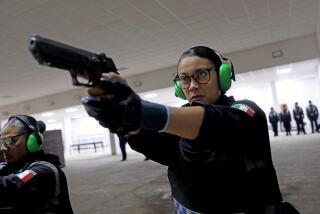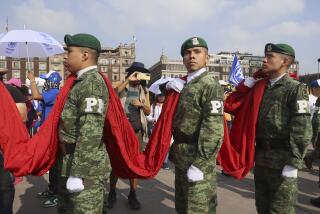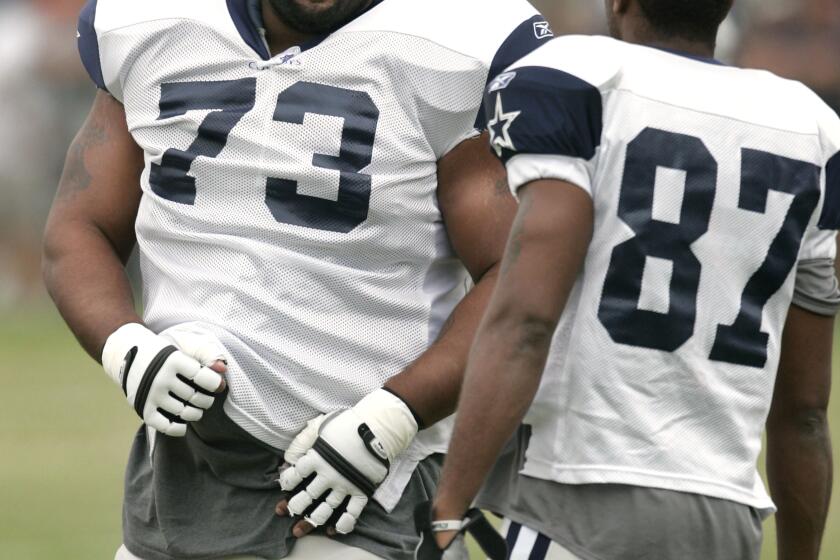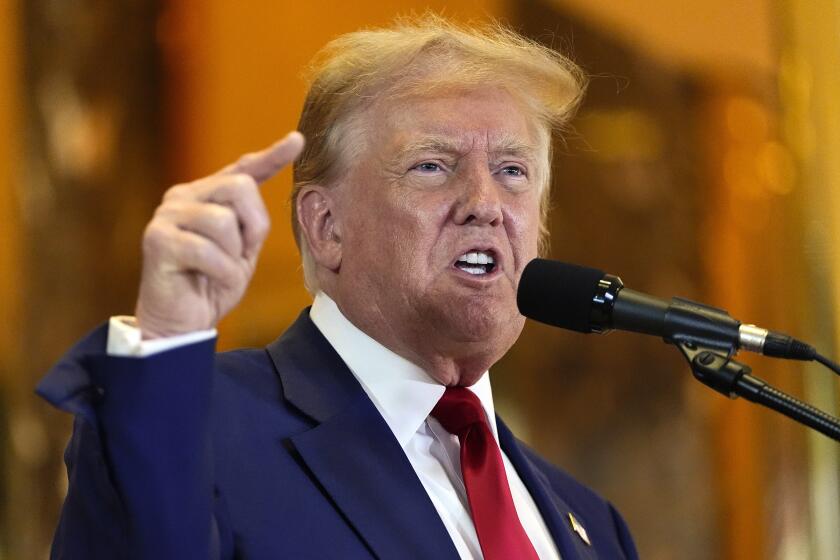Expert on KGB Testifies as Demjanjuk Trial Resumes : He Says Agency Forged Documents to Incriminate Soviet POWs Who Fled to West After World War II
The defense resumed its case Monday after a two-month break in the war crimes trial of former Cleveland auto worker John Demjanjuk, calling an expert on Soviet disinformation to the stand in the hope of recovering from earlier courtroom setbacks.
Avraham Shifrin, 64, a Russian emigre who now runs an Israeli research center for the study of the KGB, the Soviet security police, testified that as a post-World War II investigator for several government offices in Moscow, he learned of an extensive KGB effort to falsify evidence against Soviet soldiers who survived German captivity and fled to the West after the war.
Speaking in Russian, Shifrin said those former prisoners were considered traitors by the Soviet authorities and that the officials used forged documents to build extradition cases against them.
Lawyers for Demjanjuk, who is accused of being the sadistic Nazi death camp guard known as “Ivan the Terrible,” allege that a key piece of evidence against their client is such a Soviet forgery. The document is an identity card for Nazi camp guard trainees bearing the name, signature and photograph of the Ukrainian-born Demjanjuk.
The defendant, who emigrated to the United States in 1952, says he is a victim of mistaken identity and was digging peat at a German prisoner of war camp in Chelm, Poland, during the period he is alleged to have operated the gas chamber at nearby Treblinka. An estimated 850,000 victims, the vast majority of them Jews, were systematically put to death at Treblinka in 1942-43.
The Demjanjuk trial, which began last Feb. 16, was recessed in August after the first two defense witnesses were so discredited on cross-examination that defense attorney John Gill told an interviewer, “I have never before seen witnesses self-destruct like this.”
One of those earlier witnesses, Anita Pritchard, attempted suicide in her Jerusalem hotel room after publicly retracting part of her earlier testimony and admitting that her credentials were based on a one-year correspondence course for a doctorate in psychology at an unaccredited California institution.
The postponement was prolonged when one of the three judges hearing the case suffered a heart attack in early September. The judge, Zvi Tal, has since recovered.
Shifrin, who is scheduled to return to the stand today, did not indicate any direct knowledge of the contested Demjanjuk identification card. But the three-judge panel permitted him to give circumstantial evidence anyway over the prosecution’s objection.
However, Chief Judge Dov Levin cautioned that “we don’t have the Soviet Union or the KGB in the dock,” and he overruled specific questions directed at Shifrin by defense co-counsel Yoram Sheftel.
“Shifrin came prepared to give testimony about the KGB and they (the judges) don’t seem to want to hear it,” complained the defendant’s son, John Demjanjuk Jr., after Monday’s session. “If they’re going to sidestep the relevant issues of the case, how can justice be done?”
The younger Demjanjuk, who has acted as a defense spokesman, told reporters that his father is “extremely optimistic.”
Shifrin is the first of at least 10 defense witnesses expected to testify, although Demjanjuk’s attorneys have apparently been unable so far to line up any Treblinka survivors to testify on his behalf. Five survivors have previously testified for the prosecution, identifying Demjanjuk either in person or from photographs, as the guard Ivan.
More to Read
More to Read
More to Read
Start your day right
Sign up for Essential California for news, features and recommendations from the L.A. Times and beyond in your inbox six days a week.
You may occasionally receive promotional content from the Los Angeles Times.




